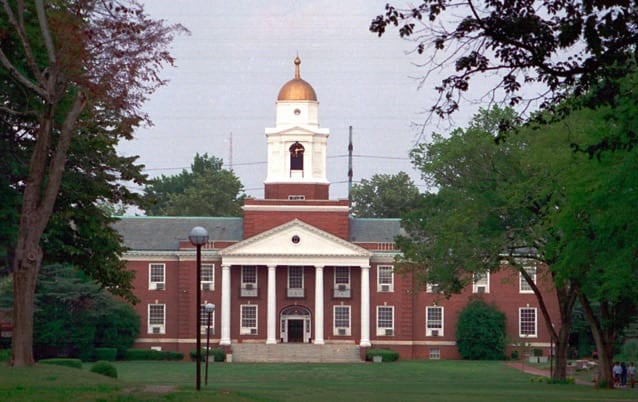Why UNCF Matters Now More than Ever

Some things never change despite swings in political leadership. Throughout the ebb and flow of our modern history, developments in federal policy and those at the top don’t change the need for educated people from across all parts of our society to move the country toward success. Particularly in today’s unique landscape, UNCF’s relevance is as important as ever. We continue our tradition of nonpartisan advocacy for the country’s HBCUs, for first-generation, low-income African American students pursuing college degrees and for K-16 education reform despite political change. We affirm that providing a quality education for all Americans is a bipartisan cause, especially when it comes to improving the lives of students who lack the resources and guidance that make a quality education accessible in the face of those who question the need.
Do you Believe in the Importance of this Work?
UNCF has long been on the front lines of progress, especially when it comes to government policies affecting our students. For example, we provide lawmakers with necessary information to help them make smart decisions about UNCF’s students and member HBCUs. Foreseeing ways in which a pending budget proposal could leave students in need, UNCF issued a report to help the new Trump administration understand how that proposal could affect HBCUs and the students we support, demonstrating our views on public policy priorities for the new administration and the 115th Congress: “UNCF will support policies that improve the college readiness of African American students; to provide early and personalized college advising that includes financial aid information; that simplify and streamline the federal student aid process; and other efforts that help ensure that students obtain the postsecondary education and workforce skills they need to be successful in today’s economy.”
We regularly put those words into action. Earlier this year, UNCF worked with a bipartisan coalition with U.S Representatives Budd, Adams and Scott and with the U.S. Department of Education and the Trump administration to acquire financial relief for institutions that were deeply affected by the economic downturn in 2008 and by the Parent Plus Loan crisis. The U.S. Department of Education announced the names of the eight private HBCUs that were first impacted by the “deferment authority” of the HBCU Capital Finance Program. UNCF noted the ways in which these factors placed a financial burden on its member institutions. We worked with bipartisan partners to place language enabling the secretary of education to grant loan deferment with a $10 million appropriation added to the FY 2018 Omnibus Appropriations Law, which Trump signed into law in March 2018. In addition to deferments made for future fiscal years, the awarded institutions were also refunded by the federal government for the payments they had already made during this current fiscal year.
On Sept. 27, 2018, the U.S. House of Representatives passed the Conference Report to H.R. 6157, the Departments of Defense and Labor; Health and Human Services; and Education Appropriations Act of 2019. This bill provides increased funding and flexibility for HBCUs and for low-income, first-generation college students. It includes a resolution to keep the government funded until Dec. 7, 2018. H.R. 6157 included the following budget increases, among many others:
- Strengthening HBCUs: $282,420,000 ($2,796,000 above FY2018 enacted level)
- HBCU Capital Financing Program: $40,484,000, with $20,000,000 specifically to defer loans ($10,000,000 above FY2018 enacted level)
- Public Service Loan Forgiveness: $350 million set aside for students to award student loan forgiveness and $2.3 million set aside for outreach efforts
Victories such as these serve as a significant reminder that striving to enact positive change is completely possible and practical. In light of these increases in funding, UNCF President and CEO Dr. Michael L. Lomax stated, “We are thrilled with this appropriations outcome, which is the second consecutive year we have seen significant increases to the programs we prioritize…. We have worked tirelessly with this Congress and Administration to emphasize the needs of [HBCUs] and the low-income, first-generation college students we serve. The federal support our institutions and students receive is integral to ensuring each student’s fair opportunity to achieve his or her dreams to get to and through college.”
Do you Believe in the Importance of this Work?